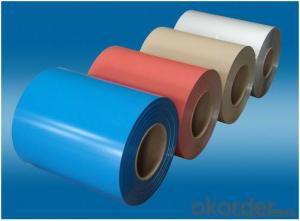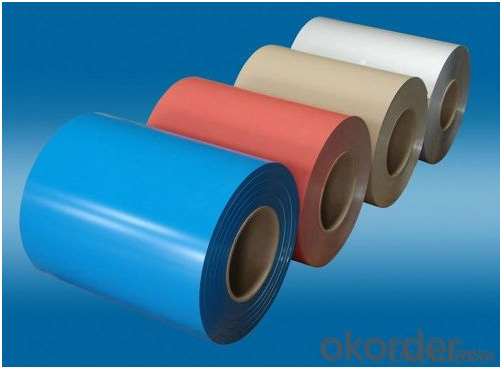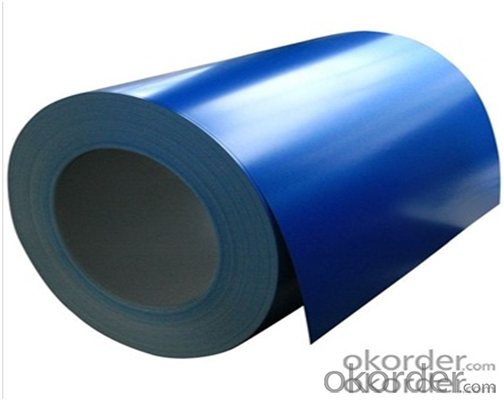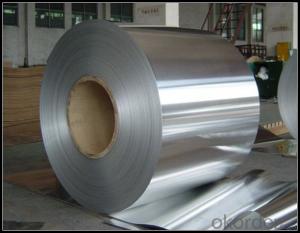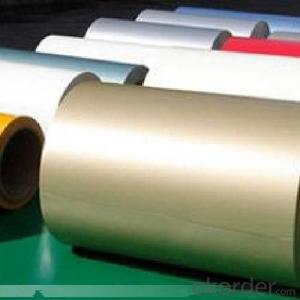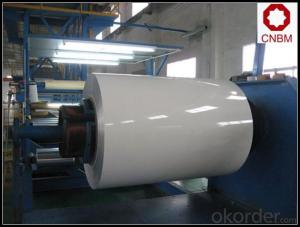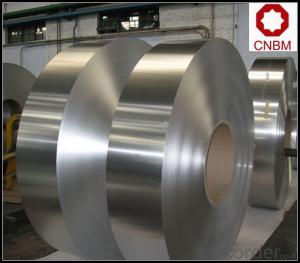Aluminum Coil China - Direct from Aluminum Coil Factory
- Loading Port:
- China main port
- Payment Terms:
- TT OR LC
- Min Order Qty:
- 1000 m.t.
- Supply Capability:
- 100000 m.t./month
OKorder Service Pledge
OKorder Financial Service
You Might Also Like
Specifications
aluminium coil
good quality
competitive price
short delivery time
long mutual beneficial business cooperation
Detailed informations
1.Alloy:AA1050,AA1060, AA1070, AA1100, AA3003, AA3004, AA3005, AA3105, AA5005, AA5052, AA5754, AA5083, AA8011
2.Temper : H12, H14, H16, H18, H22, H24, H26, H32,HO, F
3. Thickness : 0.02mm – 10mm
4. Width : 10mm- 2000mm
5. Standard : ISO9001:2000, SGS , GB/T17748-1999, ASTM, EU standard .
6. Inner diameter : 150mm , 405mm ,500mm 505mm , 508mm
7. Coil weight : 1.5tons – 5.0 tons
8. Surface Quality : be free from Oil Stain, Dent, Inclusion, Scratches, Stain, Oxide Dicoloration, Breaks,
Corrosion, Roll Marks, Dirt Streaks and other defect which will interfere with use
9. Shipment: By bulk vessel or By container
Applicating:
general using, Roofing, siding panels, shutters, warehouse and pre-fabricated houses, partitions, doors, home appliances, steel furniture,etc.
Colored coil is high in strength, good in rain and corrosion resistance,widely used in construction industry, such as modern courtyard design, large-sized industrial buildings, prefabricated thermal insulation sandwich board, etc. Along with the development of light industry, transportation and ship building, the application of colored sheet has been expanded form building materials to automobile manufacturing,watercraft interior decoration. Household electrical appliance, furniture, container and cooker, etc., and become a new material substituting to spray coating steel sheet.
Quality:
is a way of life for us and we live by quality in this industry. The quality of our
products and services are widely recognized and we have been maintaining
international quality standards. All the products that we suppliy pass through stringent
quality test before they finally arrive and that gives us a cutting edge over others,
managing in this sphere.
Product Description
Aluminium is remarkable for the metal's low density and for its ability to resist corrosion due to the phenomenon of passivation. Structural components made from aluminium and its alloys are vital to the aerospace industry and are important in other areas of transportation and structural materials. The most useful compounds of aluminium, at least on a weight basis, are the oxides and sulfates.
Despite its prevalence in the environment, no known form of life uses aluminium salts metabolically. In keeping with its pervasiveness, aluminium is well tolerated by plants and animals. Owing to their prevalence, potential beneficial (or otherwise) biological roles of aluminium compounds are of continuing interest.
The earliest citation given in the Oxford English Dictionary for any word used as a name for this element is alumium, which British chemist and inventor Humphry Davy employed in 1808 for the metal he was trying to isolate electrolytically from the mineral alumina. The citation is from the journal Philosophical Transactions of the Royal Society of London: "Had I been so fortunate as to have obtained more certain evidences on this subject, and to have procured the metallic substances I was in search of, I should have proposed for them the names of silicium, alumium, zirconium, and glucium."
Pictures
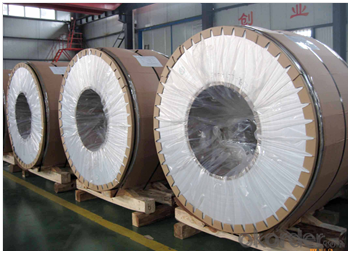
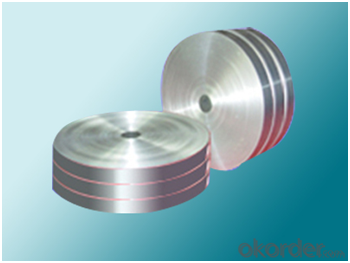
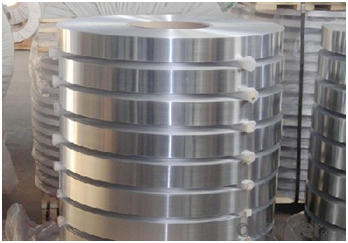
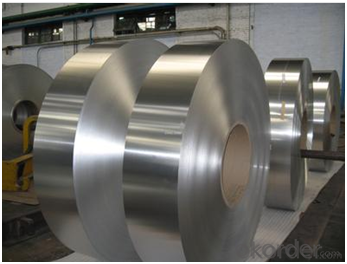
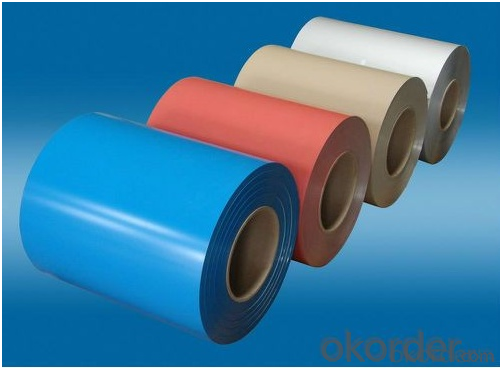
FAQ
1. What is the applications?
Outdoor decoration, business chain, exhibition of advertisement decoration and display ,ACP, wall cladding, facades, roofs and canopies, ceilings, signboards, blind window, display platforms, electrical panels etc.
2. What is the popular size?
1000*2000,1200*2400,1219*2438,1220*2440
1000*3000,1250*3000,1500*3000 etc.
3. What is the coating?
Polyester, Fluorocarbon, polyurethane and epoxy coating
4. What is the Surface Quality?
be free from Oil Stain, Dent, Inclusion, Scratches, Stain, Oxide Dicoloration, Breaks,
Corrosion, Roll Marks, Dirt Streaks and other defect which will interfere with use
5. How about the shipment?
Shipment: By bulk vessel or By container
Welcome to inquiry us! Hope we can establish a long-term relations of cooperation.
- Q: Can aluminum coils be used for electrical conductors?
- Yes, aluminum coils can be used for electrical conductors. Aluminum is a highly conductive metal that is commonly used in electrical applications. It has a high electrical conductivity, second only to copper, making it a suitable material for conducting electricity. Aluminum coils are often used in various electrical devices and installations, such as transformers, motors, generators, and power transmission lines.
- Q: What are the typical standards and specifications for packaging aluminum coils?
- <p>The standard specification for aluminum coil packaging varies depending on the industry and region, but generally includes the following: The coil is typically wrapped in a protective film to prevent damage and corrosion. It is often strapped with steel or plastic bands to secure the coil during transportation. The packaging may also include wooden pallets or crates for stability. The dimensions and weight of the packaging are tailored to the coil's size and thickness. Compliance with international standards such as ASTM, ISO, or specific industry standards is crucial. It's important to note that exact specifications can differ based on customer requirements and the end-use application of the aluminum coil.</p>
- Q: How are aluminum coils inspected for quality control?
- To maintain quality control, aluminum coils undergo a thorough examination employing visual inspections and various non-destructive testing methods. These measures guarantee that the coils conform to the necessary specifications and are devoid of any flaws or defects. In order to identify surface defects, including scratches, dents, and irregularities in shape or size, trained personnel meticulously scrutinize the coils. Additionally, inspectors check for signs of contamination, oxidation, or discoloration. If any abnormalities are detected during this visual inspection, they are promptly noted and addressed. Apart from visual inspections, internal quality evaluation of the aluminum coils is conducted through non-destructive testing techniques. One commonly employed method is ultrasonic testing, which involves transmitting high-frequency sound waves through the coils. The reflected sound waves are then analyzed to detect internal defects such as voids, cracks, or delaminations. This technique allows for a comprehensive assessment of the coil's integrity without causing any harm to the material. Another non-destructive testing method used for quality control is eddy current testing. This technique induces electrical currents in the coils and measures the resulting magnetic fields. Any variations in the magnetic fields can indicate flaws or defects in the aluminum, such as cracks or inclusions. Eddy current testing is particularly effective in identifying surface defects and discontinuities. Furthermore, measurements of crucial physical properties such as thickness, width, and flatness are taken to ensure compliance with the required standards. Specialized instruments like micrometers, calipers, or laser scanners are typically employed for this purpose. In conclusion, the inspection process for aluminum coils encompasses a combination of visual inspections and non-destructive testing methods. This comprehensive approach guarantees that the coils are fault-free, meet the necessary specifications, and exhibit superior quality.
- Q: This question asks about the impact of aluminum coils on cooking equipment, including their role in heat distribution and potential benefits or drawbacks.
- <p>Aluminum coils in cooking equipment play a significant role in heat distribution and retention. They are known for their excellent thermal conductivity, which allows for even heat distribution across the cooking surface, reducing hot spots and ensuring consistent cooking results. Aluminum's lightweight and malleability also make it easy to shape into various forms, fitting different types of cookware. However, aluminum can react with acidic foods, potentially altering the taste or releasing small amounts of aluminum into the food, which some studies suggest could have health implications. Additionally, aluminum cookware requires careful handling to avoid scratches that can compromise its performance and appearance.</p>
- Q: This question asks for a comparison of the benefits and drawbacks of utilizing aluminum coil in insulation applications.
- <p>Aluminum coil has several advantages for insulation, including its high thermal conductivity, which allows for efficient heat transfer, and its lightweight nature, making it easy to handle and install. It also offers good resistance to corrosion and is cost-effective compared to other materials. However, it has some disadvantages such as low strength, which may require additional support structures, and it can be prone to denting or damage if not handled carefully. Additionally, aluminum's high conductivity can lead to increased heat loss if not properly insulated, and it may require more frequent maintenance due to its susceptibility to environmental factors.</p>
- Q: Some makes like KIA make a point of having aluminum engines. I thought this was for weight, but was more prone to failure, especially in a high mileage car.
- Aluminum is touchy with heat, in comparison to steel. Generally the cylinder sleeves and berring surfaces are steel lined for durability. If you have a good radiator and thermostat, there is no reason the aluminum engine will not last 200,000 miles or more.
- Q: Can aluminum coils be used in the manufacturing of cans and containers?
- Cans and containers can indeed be manufactured using aluminum coils. Aluminum, being a lightweight and durable material, is extensively utilized in the packaging sector. The usual procedure involves rolling aluminum coils into thin sheets, which are subsequently cut and molded into the desired shape for cans and containers. These coils present an economical and efficient means of producing large quantities of cans and containers, as they can be effortlessly processed and molded. Moreover, aluminum is a remarkably recyclable material, contributing to its eco-friendly and sustainable nature within the packaging industry. All in all, due to their versatility, durability, and recyclability, aluminum coils are widely employed in the manufacturing of cans and containers.
- Q: The user is asking if it's possible to recycle old aluminum coils to create new ones.
- <p>Yes, you can recycle old aluminum coils into new ones. Recycling aluminum is a highly efficient process, and it's very common in the industry. Aluminum has one of the highest recycling rates among metals due to its value and the energy savings associated with recycling compared to producing new aluminum from raw materials. When you recycle aluminum, it can be melted down and reformed into new coils or other products without losing its properties. This process helps conserve resources and reduces environmental impact.</p>
- Q: What are the different coil handling equipment options for aluminum coils?
- Some different coil handling equipment options for aluminum coils include coil lifters, coil tilters, coil cars, and coil upenders. These equipment options are designed to safely handle and transport aluminum coils in various industrial applications.
- Q: What is the typical conductivity of aluminum coils?
- The typical conductivity of aluminum coils is high, ranging from approximately 35 to 40 million Siemens per meter (MS/m).
Send your message to us
Aluminum Coil China - Direct from Aluminum Coil Factory
- Loading Port:
- China main port
- Payment Terms:
- TT OR LC
- Min Order Qty:
- 1000 m.t.
- Supply Capability:
- 100000 m.t./month
OKorder Service Pledge
OKorder Financial Service
Similar products
Hot products
Hot Searches
Related keywords
